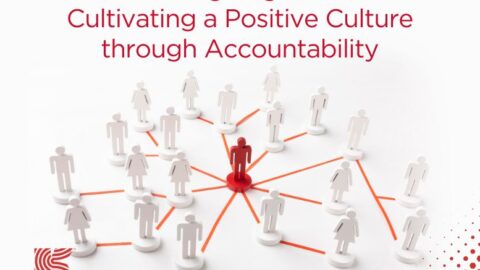Organizations spend a fair amount of their corporate training dollars on leadership development. And the biggest chunk goes toward senior leaders and executives, instead of to those who need it most – first time, frontline leaders. All too often these new leaders are put in a “sink or swim” situation as they try to navigate the transition from individual contributor to people leader.
A survey of HR leaders and practitioners conducted by the Human Capital Institute (HCI) found that “the sink or swim mindset toward new managers is ubiquitous.” Although 96% of respondents said that frontline managers are vital to driving business success, only 48% felt that their organizations adequately invested in frontline manager development.
In an article for Harvard Business Review, author Victor Lipman said, “As I neared the end of my corporate days, I realized I’d received much more management training in the last five years than I did in the first 20 years – when I really needed it – combined.” Lipman is the author of The Type B Manager: Leading Successfully in a Type A World.
Most people are promoted into their first leadership role as a result of their high performance as an individual contributor and/or because of their technical skills. Yet what helped them succeed as an individual, will not necessarily contribute to their success as a people leader – where the challenges and responsibilities require a different set of skills. In that same HCI survey, respondents were asked to rank the must-have skills for frontline managers in order of importance. Technical expertise was ranked as Number 7, preceded by:
-
- Ethics and integrity
- Communicates effectively
- Drives for results/motivation to succeed
- Flexibility/adaptability
- Develops effective teams
- Maintains relationships with internal stakeholders
While some of these skills might be inherent in a new leader, being able to apply them effectively while adapting to leading people – understanding individual strengths, motivators, skill gaps, personalities and how those individuals work together as a team, being accountable not just for their work but for the work of others – requires coaching and support. Not to mention the challenge that many internally promoted leaders face – transitioning from buddy to boss.
New leader training needs to be a key component of every organization’s learning and development plan. And it should not be just a one-day event around policies, performance reviews and disciplinary actions. It needs to be structured in a way that gives participants time to apply their learning, receive feedback, and get the ongoing support necessary (mentoring, coaching) to grow into the next line of senior leaders and executives.
Managers account for at least 70% of the variance in employee engagement. Actively disengaged employees cost the U.S. $483 billion to $605 billion each year in lost productivity, according to Gallup’s 2017 State of the American Workplace report.
Isn’t it worth increasing your investment in time and training to develop effective leaders – from the very beginning?
Till next time,
Karen









